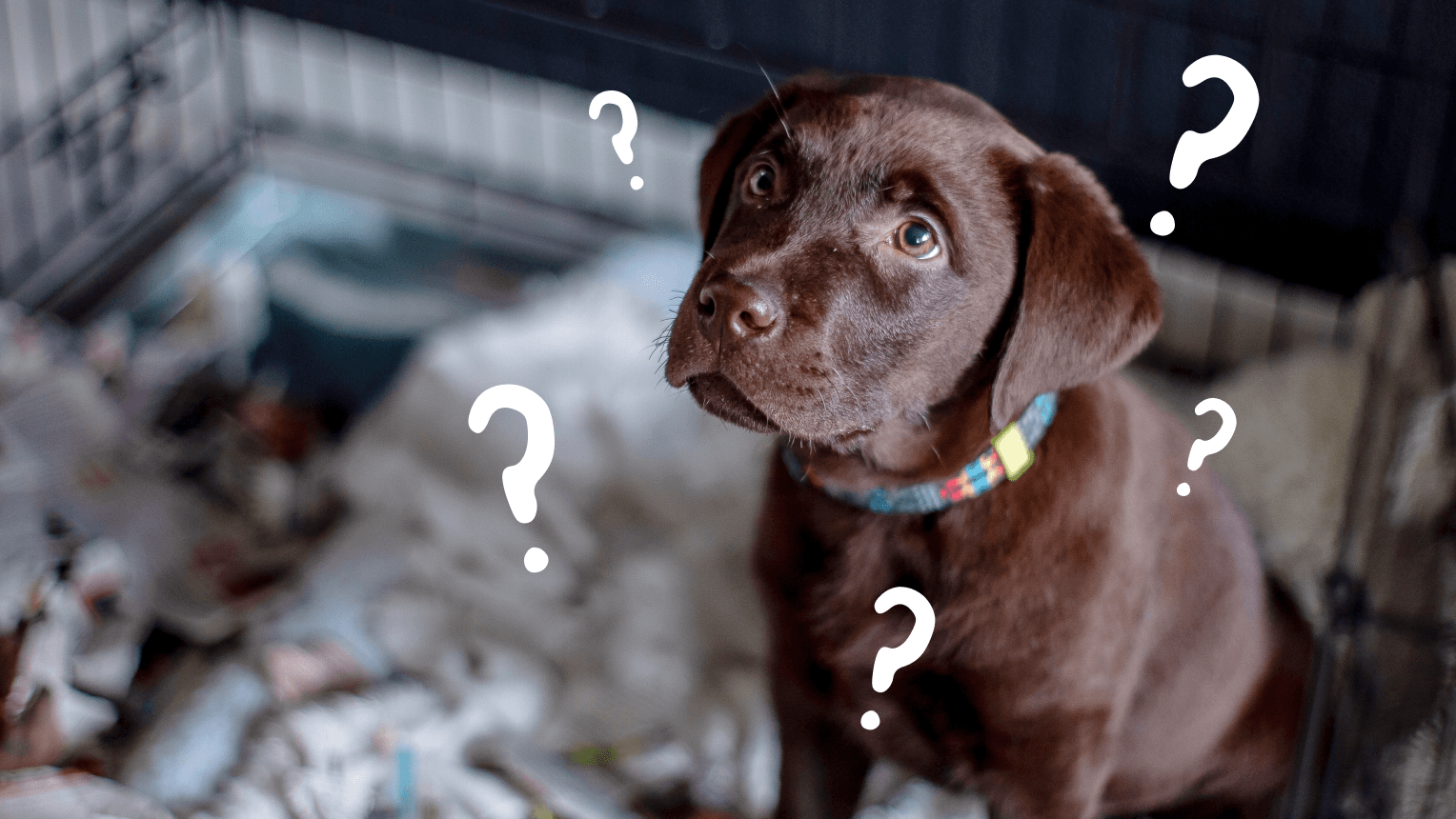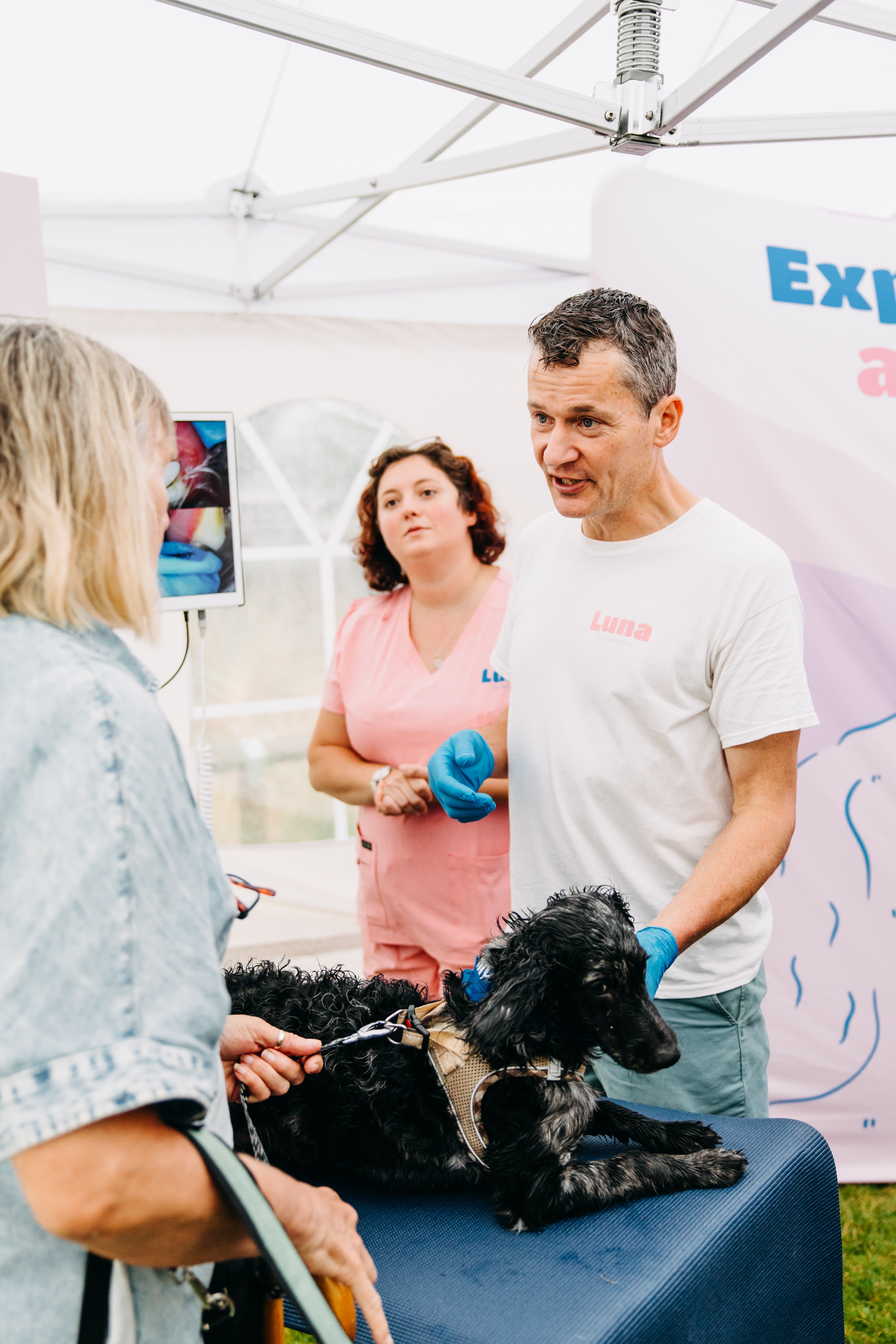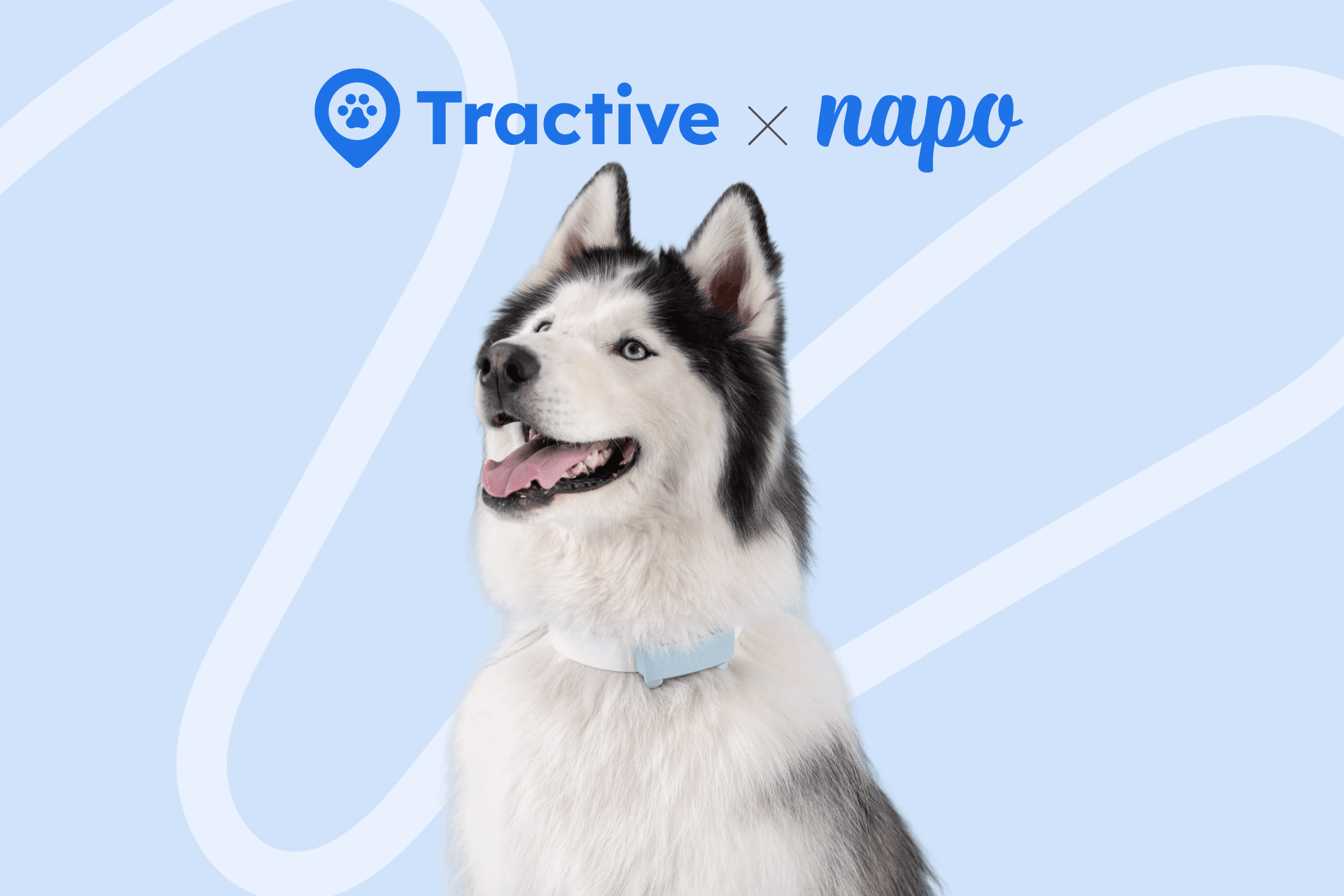How long can you leave a puppy alone?

Summary
Of course you want to spend all your time with your adorable puppy! But it's also important to slowly build up their independence to avoid the development of separation issues. This helps your pup learn to safely be alone for short periods of time if you need to leave them at home while you’re out. Start with being in a different room and build up from there.
How can anyone resist not spending every minute with their cute puppy! When you first get them, it’s easy to spend all your time together, and to be honest you have to, to keep them out of trouble! But eventually you’ll need to go places without them and want to know how long you can leave your puppy alone for.
How long you can leave a puppy alone depends on your puppy’s needs and their training. Puppies, like human babies, need extra care and attention. We'll look at the different factors influencing how long you can leave a puppy alone and give you tips to make sure your pup stays happy and safe even when you're not around.
Can you leave a puppy alone?
With training, practice, and lots of positive reinforcement, puppies can learn to be alone. This can be good for both you and your pup. Your pup will benefit from learning to be more independent and that there will be times you won’t be around, and that’s okay.
The most important thing is to slowly build up your pup’s confidence with being alone, so you or your pup don’t feel distressed when you’re apart.
Puppies should never be left alone for a long time. Dogs are social animals. They’re happiest when they’re with the people they love and need interaction. Puppies and dogs should never be left alone by themselves all day. Puppies especially need time to bond and get used to their new environment.
How long can you leave a puppy alone?
How long you can leave a puppy alone depends on their age, toilet training, and training to copy with being alone.
Puppies younger than 3 months shouldn’t be left alone. After that, puppies should only be alone for as long as they can cope with. This could look like 5 minutes for some puppies, and 30 minutes for others. Each puppy will be different and they should never be left alone long enough that they start to become stressed.
This can create separation related behaviours, sometimes called "separation anxiety”. But with gradual and positive training, you can teach your pup to learn to cope when they’re alone.
How long you can leave a puppy also depends on how often they need toilet breaks. After six months, puppies have usually developed enough bladder control that they can wait for a pee break. A 6 month old puppy can cope with being left alone for up to 2 hours.
Even if your pup is coping well, never leave them alone for longer than 2 hours. Even adult dogs who cope well shouldn’t be home alone for more than 6 hours without a bathroom break.
How long can you leave a 2 month old puppy alone?
You shouldn’t leave a 2 month old puppy alone. At 2 months, or 8 weeks, your puppy is only just old enough to leave their mum and live with you. At this age it’s crucial to stay with your puppy to settle them into their new home, a new routine, and to keep them safe.
Plus at 2 months old, your pup hasn’t even developed object permanence yet. Which means if they can’t sense you, they don’t understand that you’ve not vanished!
What age can you leave a puppy alone?
Wait until puppies are at least 3 months old before you start teaching them how to stay at home alone. Puppies will already be worried about being separated from their mum and litter, and need lots of attention and care. Focus on bonding with your pup first. Build trust, comfort and reassurance, and help them establish a routine.
They’ve just been weaned and aren’t toilet training, so they’ll still need regular feedings and toilet breaks.
After 3 months, your pup will have more bladder control and won’t need bathroom breaks as often. This can be a good time to start training your pup for alone time. But remember, every puppy is different so work with the pup that’s in front of you and make sure to keep it all a positive experience.
How to train a puppy to be alone
To prep for the times when you’ll need to leave your pup alone, you can start teaching your pup to cope while you’re away. This helps them learn it’s okay or even part of their routine to have time alone.
Here are some tips to help you get started with training your puppy to be alone. Just remember that every puppy is unique so their training process will be too. Go at your pup’s pace and be patient.
If your pup shows signs of stress and is struggling, reach out to a behaviourist for advice and help that’s tailored to your puppy.
Create a safe puppy-proof space
An important first step is to create a safe and comfortable environment for your puppy when you're not around. It also means your pup will be safe and not chew or tangle themselves on anything while you’re gone.
This could be a crate or a puppy-proofed room. This is where crate training can come in handy. Your pup can hang out safely in their crate for short amounts of time while you’re away. You can also use pet gates to block off certain areas. Make sure wherever they are has some water and a cosy bed.
Food, snacks, or toys can be a choking hazard so it’s better for you to be home to supervise when your pup has these. Food that’s left out can also go bad. It’s better to wait to come back to feed your puppy.
Start while you’re at home
Start by teaching your pup to get used to you not being there 24/7 while you're still at home all the time. Start with just leaving the room or being out of sight of your pup for a few seconds. See how they respond, and if they’re happy and comfortable, keep practising this and gradually build up the time you’re out the room.
Create a routine
Create a consistent daily routine for feeding, playtime, and alone time. Puppies and dogs thrive on routine because it helps them predict your movements and know what’s next. Practice being out of sight or in a different room at the same time every day so your pup gets used to it being a normal part of every day.
Start gradually
Start with short intervals of alone time, even if it's just a few minutes. Gradually increase the duration as the puppy becomes more comfortable.
Get a pet camera
Pet cameras let you check on your pup if you have to pop out and can help you feel more at ease. It also means you can check that they’re not distressed.
Avoid using the talk features to talk to your pup though. It might seem like hearing your voice would be reassuring, but often it’s not. For many puppies, it stresses them out if they hear you and think you’re home but can’t find you. This can create separation-related behaviours or make them worse.
How to train puppy to sleep alone
Sticking to a consistent routine is the best way to start training your puppy to sleep alone. Going to bed and waking up at the same time helps your puppy anticipate what’s happening next and will build a sense of security.
This lets your pup know when the bedtime routine starts, it’s time to wind down. Do something calming like going on a short walk, or gently stroking them. Use treats to reward your pup when they settle down for the night.
Create a cosy bed for them and make it a comfy space to sleep. You can keep a soft blanket in their crate or sleep space.
Start by sleeping near your pup to help them learn to sleep alone. Over time, you can move further away. Eventually, once they fall asleep you can go to your bedroom. If they cry, you should soothe them. We’ve got more tips on handling puppy crying in this guide.
If your puppy experiences difficulty adjusting, consider consulting a vet or behaviourist for advice on potential health issues or behavioural needs.
How to stop puppy crying when left alone
To stop your puppy crying at night, make sure they don’t need the toilet, and set their sleeping space up to be as cosy and reassuring as possible. If you can, stay near your pup until they fall asleep, but don’t talk to them. A reassuring presence is often all they need!
Don’t leave your puppy to cry it out. It can stress them out more, and neither of you will get any sleep. Instead, comfort them quietly and calmly with gentle strokes and then try to settle them back down. Check out our guide on how to stop puppy from crying at night for more detailed tips.
Jump to
Making pet dental care easier with Luna

Making pet dental care easier with Luna
Blog
Napo & Tractive launch partnership offering pet parents free GPS and health devices

Napo & Tractive launch partnership offering pet parents free GPS and health devices
Blog
Why isn’t my cat using the litter tray?

Why isn’t my cat using the litter tray?
By Rachel Rodgers MSc, Head of Training at Napo Pet Insurance
Blog